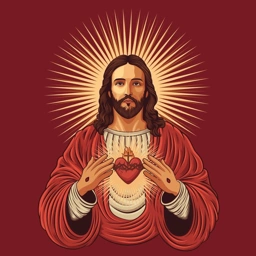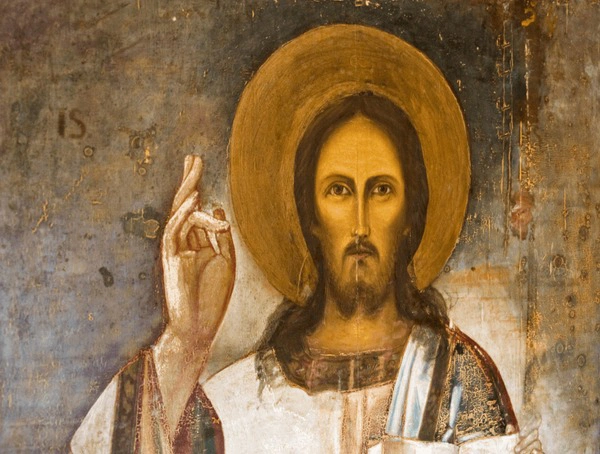
The Call of Jesus: Lessons from Matthew 4:21
In Matthew 4:21, Jesus calls James and John, illustrating themes of spiritual transformation, family support, and the universal nature of His mission. This passage invites readers to see how ordinary lives can be transformed through faith and commitment to God's purpose.
Joshua Brooks
28/11/2024 - 6 months ago

The Call of Jesus
In the Gospel of Matthew, Chapter 4, verse 21, we encounter a pivotal moment where Jesus calls two of His disciples, James and John. This passage is significant as it reveals the nature of Jesus’ mission and His approach to gathering followers. Unlike other religious leaders of His time, Jesus did not seek out scholars or those of high social standing. Instead, He approached ordinary people engaged in their daily routines. James and John were fishermen, working alongside their father, Zebedee, mending nets by the sea. This scene portrays a profound truth about the kingdom of God: it includes everyone, regardless of their occupation, background, or status.
The act of mending nets is symbolic in this context. Fishing nets, when torn, cannot fulfill their purpose. Similarly, Jesus’ call to James and John suggests a repair of their lives, redirecting their purposes from mere survival to becoming fishers of men. Jesus’ invitation was not just about leaving their current work but about transforming their lives for a greater cause. The simplicity of the scene—men at work by the sea—contrasts with the monumental change that would follow their decision to accept Jesus’ call.
This encounter also highlights the immediacy of Jesus' call. The Bible describes how James and John left their nets and father immediately to follow Jesus. This demonstrates the compelling nature of Jesus’ presence and the urgency of His mission. The decision to follow Jesus was not delayed; it was immediate, showing their willingness to trust and commit to a new path without hesitation. Such a response is a testament to the powerful draw of spiritual purpose over daily routine.
A Family's Role
The presence of Zebedee, the father of James and John, adds another layer of depth to this passage. Zebedee represents the familial ties and responsibilities that often anchor individuals. In many cultures, the family business is a source of livelihood and identity. Leaving such a foundation required not only personal conviction but also familial understanding and support. Zebedee’s role underscores the tension between familial duty and spiritual calling.
However, the narrative does not depict Zebedee as an obstacle. While the text does not detail his reaction, the implication is that he understood the significance of Jesus’ call. Zebedee's silent presence signifies the supportive role family can play in the spiritual journeys of its members. It also highlights a broader theme within Christian teachings: the balance between serving God and honoring family duties.
The transformation from fishermen to apostles did not negate James and John’s family responsibilities but rather redefined them. They became part of a larger ‘family’ under Jesus’ guidance. This transition reflects the biblical concept of spiritual kinship, where relationships extend beyond blood ties to encompass a community united by faith and purpose. Such a shift invites readers to consider how their own families can support spiritual growth and mission.
The Broader Mission
When Jesus called James and John, He was laying the groundwork for a broader mission. His choice of disciples from various backgrounds reflects the inclusive nature of His message. Jesus’ ministry did not target a specific group; instead, it embraced a wide array of individuals, challenging social norms and expectations. Fishermen, tax collectors, and zealots were all part of His diverse group of followers, demonstrating that God’s call is universal.
This inclusivity is a recurring theme in Jesus’ teachings. By involving people like James and John, Jesus exemplified that the kingdom of God is accessible to all, transcending social and economic barriers. This message was radical for its time, as it countered the prevailing idea that religious and spiritual leadership was reserved for the elite. Jesus’ approach empowered ordinary people to become extraordinary leaders, sharing His love and teachings with the world.
The call to follow Jesus is a call to join in His mission of love and service. It is not limited by one’s past or profession. James and John’s journey from fishermen to apostles illustrates how ordinary lives can be transformed through faith and commitment to God’s purpose. This transformation is available to everyone, inviting individuals to contribute to a larger story that reflects God’s love for humanity.
Lessons for Today's Believers
James and John’s story offers valuable lessons for believers today. First, it challenges individuals to recognize the call to service in their own lives. Regardless of one’s current situation or occupation, the invitation to follow Jesus remains open. This call encourages people to look beyond their immediate circumstances and consider how they can participate in God’s mission in the world.
Secondly, the narrative emphasizes the importance of readiness and willingness to respond to God’s call. Just as James and John left their nets immediately, modern believers are encouraged to act with similar urgency when they discern God’s direction. This readiness reflects trust in God’s plan and a commitment to change, even when it requires stepping out of one’s comfort zone.
Finally, the story underscores the significance of community and support. The presence of Zebedee in the narrative reminds believers that spiritual journeys often involve others. Family, friends, and faith communities play crucial roles in nurturing and supporting one’s spiritual growth. These relationships can provide the encouragement and strength needed to pursue a life dedicated to following Jesus.




















